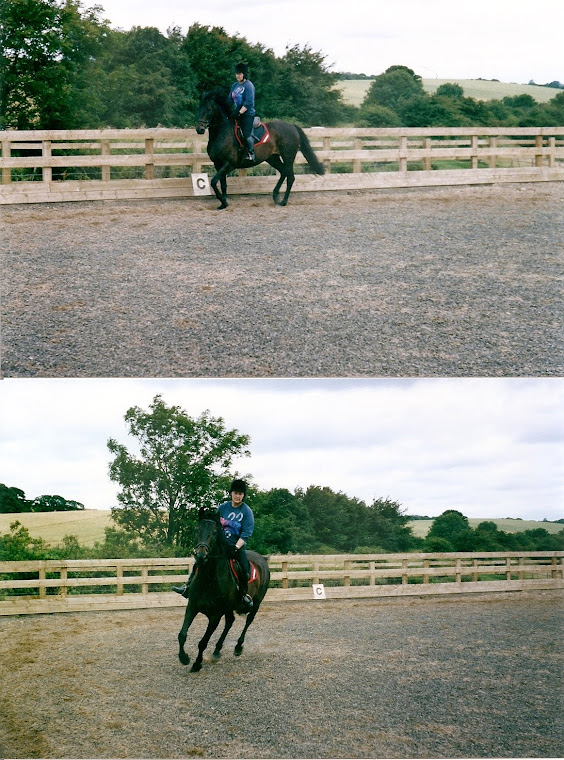He had been checked and was fine the day before trotting up the field to me and eating his dinner, very alert and his usual self I had never heard of this before it happened to me, when I found my beautiful homebred big strong horse dead in the field. I was told after the post mortem by my own vet and by our neighbour also a vet, that he would be dead within a max of four hours of the bacteria entering his body, by either breathing it in, digesting it or it entering via a puncture wound.
There was nothing I could have done.
There was nothing I could have done.
There were three other horses in the field unaffected by it. My horse was apparently unlucky. It is commonly known in sheep (blacks disease, blackwater disease, blackleg) and a vaccine is available in this country for sheep (and for cattle) but not as yet for horses. It is resident in all soil like tetanus but something (?) activates it.
I have since researched this looking for answers to ‘why’ and it appears that it a version of the bacteria is quite common in Kentucky
I’d like to know why a vaccine isn’t available in this country, yet we all vaccinate against tetanus as a matter of course.
I’d also like it to be more widely known about in the horse world as after over 40 years of being involved I had no idea and no-one else I have spoken to has even heard of it.
To try to help raise the profile of this terrible bacteria and campaign for the vaccination to be readily available in this country I have contacted the British Horse Society, World Horse Welfare, Your Horse and Horse and Hound magazines to ask if they can help to campaign for the vaccine. So far Horse and Hound and the BHS have responded positively but nothing has actually happened other than the BHS publishing my letter
I seriously believe that it may be more common than we think but unless a post mortem is performed we put it down to other things, for example initially I thought he’d had a brain haemorrhage.. Not everyone can afford to have a pm done and insurance will not cover the cost of a pm so stats are not readily available as to the occurrence of this indiscriminate killer.
I have written to racing yards to see how often they have seen it and also to the British Equine Veterinary Association to see if any research has been done. I have also written to Countryfile (the tv programme) to see if they could publicise it and also to the insurance companies and drug companies.
I've also approached a number of celebrities with alleged interest in horses and prominent figures in the horse world so far often without even a response
I have been very disappointed in the lack of response from everyone I have written to so far, as if people know about it and want to take the risk so be it but if you don’t know it exists how can you take any measures to prevent it?
All I am trying to do is make people aware that it exists and that we could prevent it if a vaccine was available in this country
The drug companies won't manufacture the vaccine for horses unless there is a demand and the demand won't be created unless people know of the risk.
THIS BACTERIA CAN AFFECT ANY HORSE ANYWHERE ANYTIME WITH NO WARNING. DO YOU WANT TO TAKE THE RISK WITH YOUR HORSE?
The drug companies won't manufacture the vaccine for horses unless there is a demand and the demand won't be created unless people know of the risk.
THIS BACTERIA CAN AFFECT ANY HORSE ANYWHERE ANYTIME WITH NO WARNING. DO YOU WANT TO TAKE THE RISK WITH YOUR HORSE?
This has devastated me as I still have his mother who is 32 and my old pony was 35 when I lost him, so I really believed I had at least 10 years of Quest (he was 19) left to me. We had a really special relationship as he was a twin, his sibling was born dead and I had to stay with him in the stable for the first 48 hours lifting him up to suckle as he was too weak to do so on his own. He then grew into a fabulous strong horse admired by everyone, but four years ago was kicked and had to have an operation on his knee to remove a piece of bone. Through all this he survived and came out sparkling.
I feel really robbed of his life and that no-one should have to go through what I and my horse did and I do not want him to have died in vain, so if anyone out there thinks they may be able to see a way to offering any support at all in publicising the existence of this terrible terrible killer bacteria, and help to get aa vaccine out there to stop other needless horse deaths I would be very grateful.
Thank you
